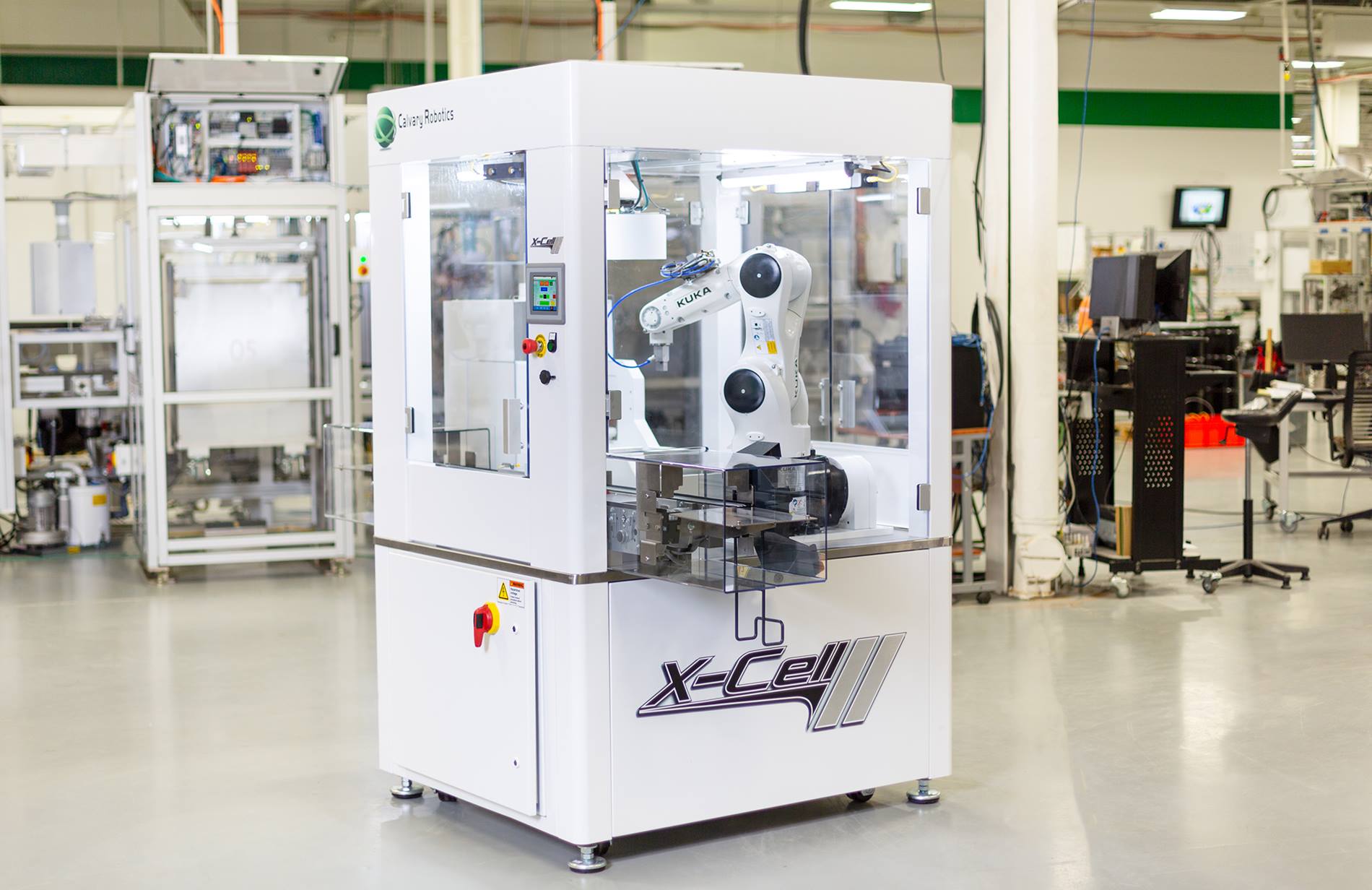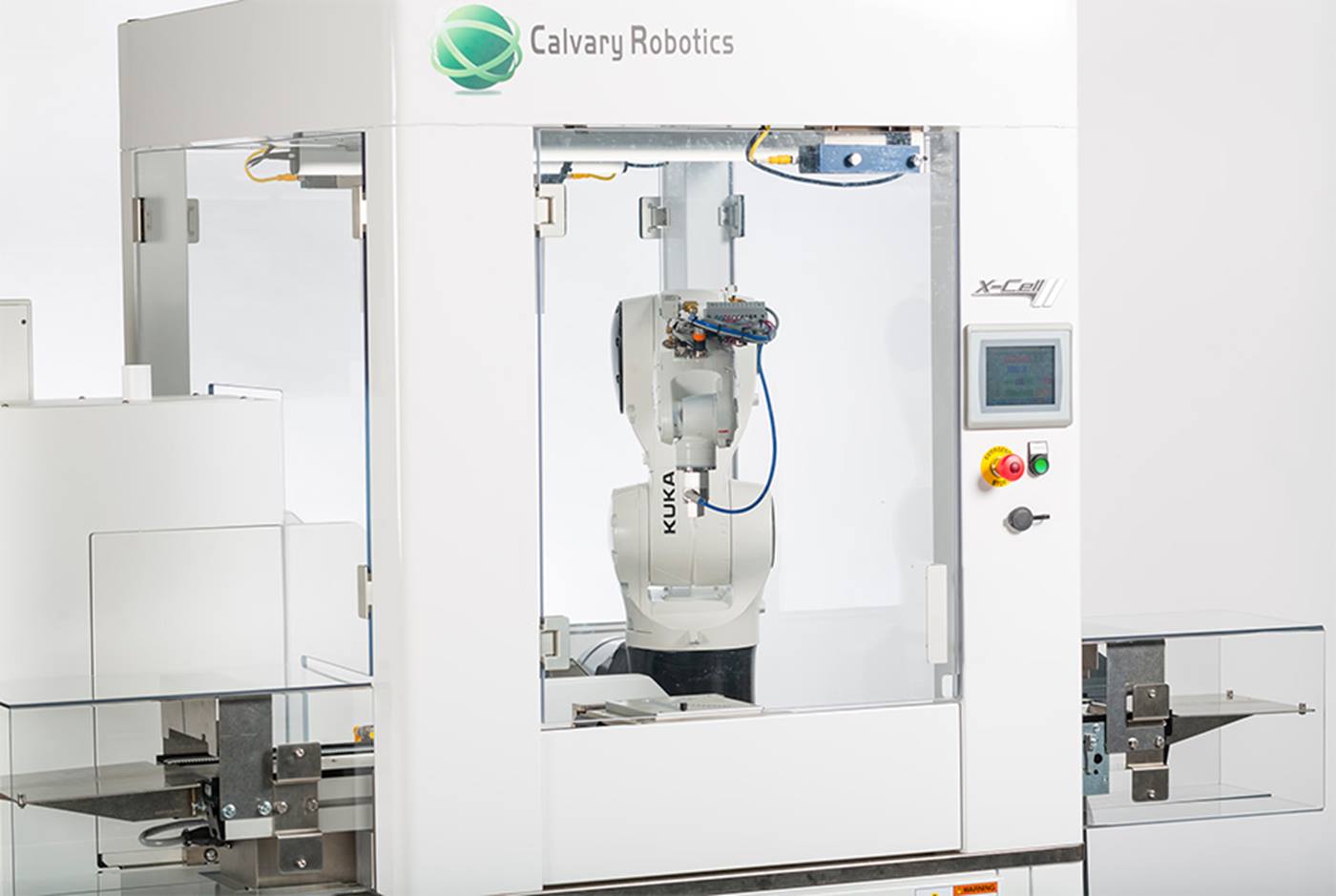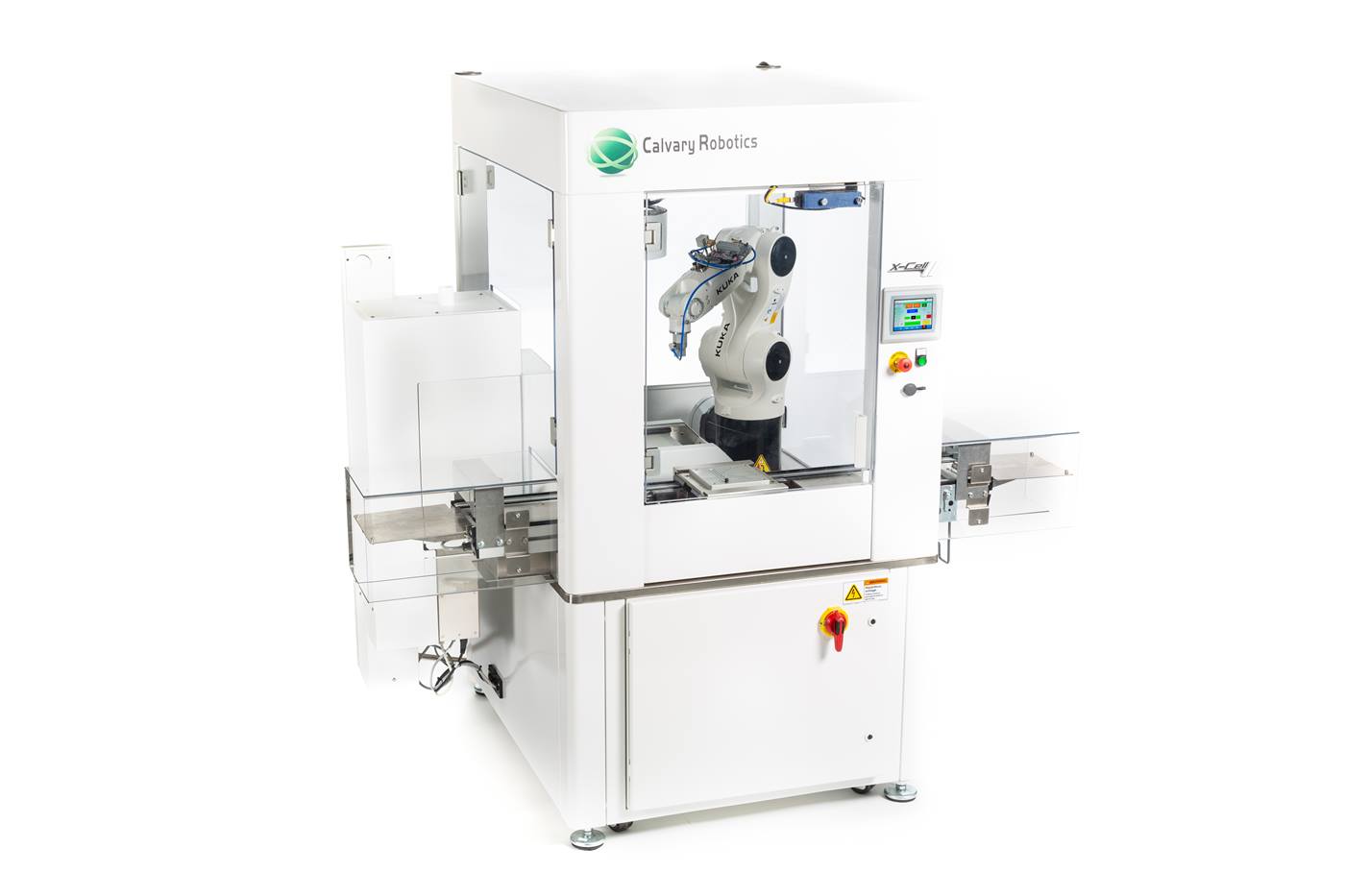
Calvary Delivers Automation Expertise
From its inception in 1994, KUKA System Partner Calvary Robotics set and kept the bar high to become a world leader in robotics, automation and materials handling solutions.
From its inception in 1994, KUKA System Partner Calvary Robotics set and kept the bar high to become a world leader in robotics, automation and materials handling solutions. With two U.S. locations and one in Malaysia, the company is uniquely positioned to utilize its in-house expertise along with a long-standing relationship with KUKA to solve customer challenges in a global market.
"Kuka has built a deep relationship across all areas of our team and provided world-class support from engineering to after sales service. They have worked hard to understand our market strategy and positioned us with their customers in a way that aligns with that strategy,” said Mike Marseglia, Vice President of Robotics & Technology. Confidence has been the prime ingredient to Calvary’s enduring affiliation as a KUKA System Partner.
“Knowing how far KUKA will go to deliver on time and how trusted they are in the industry are important factors,” Marseglia said. “We know if there’s an issue, we can work with them closely and the issue will be solved. If we need field support, they’ll be there.”

Clients initially present a “problem statement,” outlining the issue that needs to be solved. In some cases, particular products and technology will be specified, while many customers choose to rely on Calvary’s team of engineers and fabricators to design, develop, build and integrate a turnkey system.
During the pandemic, the company found numerous opportunities, capitalizing on the disruption and confusion caused by unprecedented measures impacting the global economy. While taking the appropriate and necessary precautions, Calvary was able to take on and deliver a significant number of jobs for customers.

More importantly, Calvary has mastered the art of leveraging lessons learned from one industry to another to streamline processes and shorten delivery times. In addition to integrating systems and technology, the company also manufactures a proprietary line of robotic cells, feeders and tending equipment.
The demand for Calvary services is being pushed in large part by the same forces and challenges facing much of the manufacturing industry. Employee shortages and maintaining a skilled workforce on the shop floor, continue to drive more and more companies to automation. As the post-pandemic demand for goods continues to outpace production capacity and the pool of properly trained operators continues to be limited, many companies are now looking to automation to keep pace and provide a quick solution. Robotic automation is a fast-track to meeting demand by increasing the output of existing workforces on the shop floor.
Additionally, shops are attempting to find new solutions to dangerous and repetitive tasks that are becoming less suited to human interaction now that robotics is becoming more prevalent in mainstream manufacturing.





